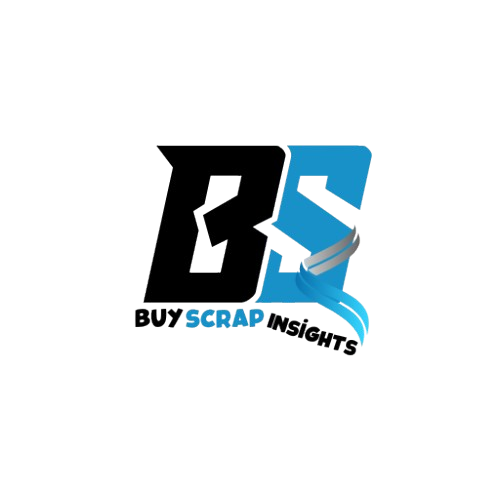
Compliance Made Simple: How Scrap Yards Can Stay Ahead of State Laws
If you run a scrap yard, you already know how messy state rules can get. One place wants detailed ID checks, another insists on VIN records, and just when you think you’ve got it figured out, a new update drops. Slip up once and you’re staring down fines or, worse, risking your whole operation. That’s exactly why scrap yard compliance software is becoming a must-have instead of a “nice-to-have.” Trying to juggle all this with notebooks or spreadsheets? That’s just asking for stress.
Here’s the beauty of compliance software: it takes the busywork off your plate. Every transaction gets logged automatically, IDs are verified in seconds, and even those tricky reporting requirements get handled behind the scenes. No more digging through old files when an inspector shows up, everything’s organized and ready to go.
And the best part? Compliance doesn’t have to feel like a constant headache. With the right digital tools and a few smart habits, you can stay on top of state laws, protect your yard, and keep your business moving without that knot in your stomach.
Why Scrap Yard Compliance Software Is Essential?
Running a scrap yard isn’t just about moving metal around. The hard part is keeping up with all the rules: logging every sale, checking IDs, reporting to the state, and hoping nothing gets missed. Try doing that by hand, and sooner or later, something slips.
That’s where compliance software helps. It keeps track of every deal automatically, checks IDs in seconds, and pulls up reports when you need them. No stacks of paperwork, no late-night panic before an audit.
It also cuts down on mistakes because people get tired, but software doesn’t. And when the state changes a rule (which happens all the time), the system updates so you’re not left behind.
Most importantly, it handles scrap metal transaction compliance in the background. The software makes sure every record, ID, and payment lines up with the law, so you can focus on running your yard instead of chasing paperwork.
Scrap Metal Laws by State: Why One-Size Doesn’t Fit All
If there’s one thing every scrap yard owner learns quickly, it’s that no two states play by the same rules. What’s legal in one state might earn you a fine in the next.
Some states want you to hang on to records for years, while others only care about recent transactions. A few demand cashless payments, and others are strict about how you handle vehicle scrap.
At the core, though, a few things are universal no matter where you’re based. Every yard needs detailed transaction logs: who sold what, how much, and when. VIN checks are a must when it comes to vehicles, and skipping them is just asking for trouble.
And of course, proper ID verification is non-negotiable. Whether it’s a driver’s license or another state-approved document, you’ve got to make sure sellers are who they say they are.
This is exactly why compliance can’t be a cookie-cutter process. You’ve got to know your own state’s playbook and adjust your systems accordingly.
5 Biggest Differences Scrap Yards Face Across States:
- How long do you need to keep transaction records?
- Whether cash payments are allowed or banned
- How VINs must be recorded and verified
- Rules around reporting to law enforcement (like LeadsOnline)
- Requirements for holding or tagging certain scrap items before resale
Trying to manage all that by hand? It’s almost impossible. That’s where software helps by keeping your yard compliant, even when the rules aren’t the same from one border to the next.
Scrap Yard Compliance Tips to Stay Ahead of State Laws
Step 1: Maintain Detailed Records for Scrap Yard Record Keeping
Keeping good records isn’t just paperwork: it’s protection. Every deal that comes through your yard needs to show who sold it, what they brought in, how much it weighed, and a copy of their ID. If that information’s missing, you’re the one who’ll pay for it when inspectors show up.
Vehicles are even trickier. The VIN has to be written down exactly as it is. If it looks scratched out or missing, that’s a red flag for stolen goods. Ignoring it can put your license and your yard at risk.
Now, doing all this on paper is a headache. Things get lost, numbers get mixed up, and nobody wants to dig through old boxes during an audit. With scrap yard compliance software, every transaction is stored automatically. When someone asks for proof, you pull it up in seconds instead of wasting hours.
Good scrap yard record keeping isn’t about ticking boxes for the state. It’s about keeping your business safe and your day-to-day running smoothly.
Step 2: Implement Robust Verification Procedures
Every load that comes through your gate needs to be checked. No exceptions. Start with IDs. If you don’t know who you’re buying from, you’re taking a risk. A proper ID on file protects you if the police come asking questions later.
Vehicles bring even more responsibility. Always check the VIN. If the number’s missing, scratched off, or looks tampered with, stop right there. Taking that car in could tie your yard to a stolen vehicle case, and nobody wants that kind of trouble.
Doing all this by hand is where mistakes creep in. Numbers get copied wrong, papers go missing, and when an inspector shows up, it’s you who pays the price. Scrap yard compliance software takes away that guesswork.
IDs can be scanned straight into the system. VINs get recorded automatically and stored with the ticket. Everything’s clean, organized, and ready to pull up when needed.
It’s not about making life harder, it’s about protecting your yard and keeping business steady. The software just makes it easier to do the right thing, every time.
Step 3: LeadsOnline Reporting for Scrap Yards
Look, reporting is one of those jobs nobody in the yard looks forward to. It’s slow, it’s repetitive, and if you mess up a detail, the cops are at your door asking questions. That’s where LeadsOnline saves you.
Instead of sitting down at the end of the day to type out every ticket, the system sends it straight to law enforcement the moment you log the transaction. No second step, no stacks of paperwork.
The beauty of it is you don’t have to remember a thing. IDs, VINs, payments: once they’re in the system, they’re already on record with the folks who need to see them. You stay transparent without breaking your back trying to keep up.
And here’s the kicker: when the rules change (and they always do), you’re not left scrambling to figure out new forms or deadlines. Because the software updates and keeps you in line automatically. Instead of stressing about compliance, you can focus on running the yard and moving metal.
Step 4: Monitor State Laws and Stay Informed
If there’s one thing you can count on in this industry, it’s that the rules never sit still. What’s fine today can get you fined tomorrow. We have seen yards shut down simply because they didn’t catch a new update in time.
The smart move? Don’t try to keep up all on your own. Join an industry association. They’re usually the first to hear when lawmakers are cooking up changes, and they’ll break it down in plain English so you know exactly what it means for your yard.
On top of that, checking your state’s agency websites every now and then is just good insurance. It’s not fun reading, but it beats getting blindsided.
Here’s where software really saves your skin. Good scrap yard compliance software isn’t just about tickets and records, it can also push alerts straight to you when laws shift in your state. No digging, no guessing. You get a ping, you read it, and you adjust before it ever becomes a problem.
Step 5: Understand and Comply with Environmental Laws
Scrap yards don’t just deal with metal. You’ve got batteries leaking acid, oil from engines, fluids from old machines, and if that stuff ends up in the wrong place, you’re in serious trouble. States are strict about waste management, air quality, and water safety. Ignore it, and you’re looking at fines, shutdowns, or even lawsuits.
The smart move? Set up your yard to handle it right. That means proper storage for hazardous material, safe disposal facilities, and clear processes so your team knows what to do. It’s not just about passing inspections, it’s about protecting your workers and your business.
Now, nobody has time to keep chasing paperwork every time a new rule pops up. That’s why many yards are turning to compliance software. It tracks your environmental reports, keeps audit logs, and stores certifications, so when regulators show up, you’ve got everything ready in a couple of clicks. No scrambling, no guesswork.
Scrap Yard Compliance Software: Your All-in-One Solution

Running a yard is tough enough without juggling binders, paper logs, and surprise inspections. That’s where scrap yard compliance software steps in, it pulls all those messy tasks into one clean system. Think of it as your digital safety net that keeps you covered on every front.
Here’s what it handles for you:
Record Keeping:
Every transaction, seller detail, and VIN check is logged automatically, so you’ve got a digital paper trail ready for audits.
ID & VIN Verification:
No more squinting at driver’s licenses or worrying about sketchy vehicle numbers. The software scans, verifies, and flags issues instantly.
Staff Training Support:
Helps your team stay sharp by tracking certifications and making sure everyone’s up-to-date on new rules.
LeadsOnline Reporting:
Cuts out double work by sending transactions straight to law enforcement, so you don’t have to type everything twice.
Environmental Compliance Tracking:
From hazardous waste to air and water safety, the system keeps tabs on reporting and certifications, keeping you out of hot water.
The best part? Instead of stressing over laws that change every other month, you’ve got one dashboard doing the heavy lifting. That’s peace of mind, fewer fines, and more time to focus on actually running your business.
Conclusion
Compliance usually feels like a headache. Rules keep changing, paperwork piles up, and one small mistake can cost you big. But here’s the flip side: when you get it right, it’s not just about avoiding fines. It actually makes your yard run smoother, builds trust with customers, and keeps you out of trouble with the law.
That’s where compliance software comes in. Instead of drowning in receipts and reports, the system keeps everything organized, from ID checks to transaction logs to environmental rules. You don’t have to chase paperwork; it’s all right there, ready if anyone asks.
If you’re tired of stressing over state laws, why not give it a try? Book a demo at buyscrapsoftware.com and see for yourself how much simpler compliance can be.





